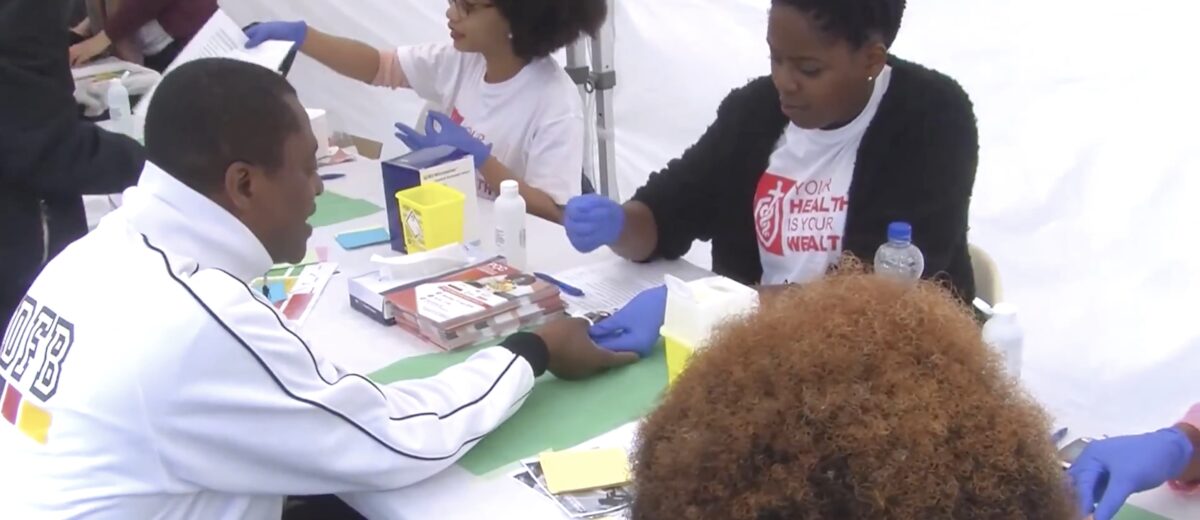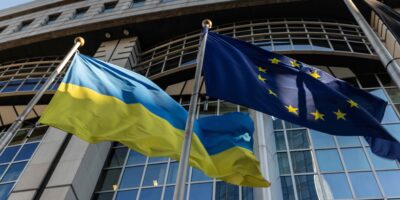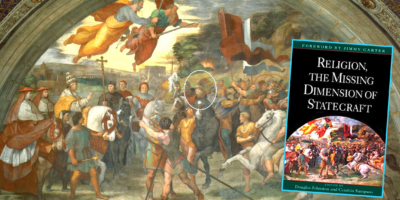Faith communities and religious organisations in an Amsterdam district contribute significantly to the welfare of individuals, families and communities in ways beyond the scope of government departments.
Representatives of the Amsterdam Southeast district council heard this week that local faith communities had offered services worth over €7.65 million in social impact value last year.
On Thursday evening, representatives of both faith communities and the Southeast district council gathered in the council chamber to hear the results of research into the social impact of the local faith communities.
Ironically, under the influence of secularisation thinking that modernity was replacing religion, the Southeast district was developed in the 1960s without any religious facilities planned. Despite the lack of meeting facilities for Christian, Muslims, Hindus and others, the Southeast district now has the highest number of faith communities in all of Amsterdam.
Researchers identified more than 140 faith communities and faith-related organisations active in Amsterdam Southeast – due to the high proportion of migrants. Over 130 nationalities contribute to a strong sense of community and cultural diversity, accompanied by the challenges of poverty, health, housing and security.
A full third of the district’s population suffers from a chronic illness or condition. Mental health scores below the city average. Many suffer loneliness and stress. Lack of skills, education and work opportunities compound the social needs.
Dr Piet Brinksma, the driving force behind the research, explained the criteria for classifying activities as ‘community service’ as including true accessibility for people of all faiths and none, openness to the vulnerable and those with limited resources, and excluding specific religious gatherings.
‘Other-worldliness’?
The project began with compiling a comprehensive database of the faith communities and faith-related organisations. These were all invited to complete an online survey concerning their social engagement activities. At several information evenings and dinners support was offered in completing the survey. Several faith networks collaborated with council staff in both designing the survey and collating the results.
One third of all faith communities and faith-based organisations participated in the survey: forty-four Christian, one Muslim and one Hindu. Had more communities participated, the actual value of social services rendered could perhaps have been even doubled.
Over two-thirds were Pentecostal, countering the ‘other-worldliness’ image many have of that stream. In fact, the Pentecostal Council of Churches (PCC) was a major partner and initiator of the research project.
Over the past decade, Pentecostal leaders have developed an awareness campaign Your health is your wealth after discovering many were afraid to seek help from the Amsterdam Medical Centre. Rumours circulated that those who went there for treatment did not return. Over the past decades, hundreds of trained volunteers have manned information tents in marketplaces to test blood pressure and sugar levels for thousands of locals (see photo).
Food banks, a No-Budget restaurant for those struggling financially, soup kitchens, neighbourhood dinners offer not only food but companionship, personal dignity and worth. A Mamma Café creates space for safety and connection through and for women. Other activities include care for the elderly, disabled and vulnerable, help with finding housing, childcare, counselling, family care, financial services and advice, unemployment assitance, education, homework assistance and business advice.
Flourishing
Dr Moses Alagbe, PCC president, stressed that faith communities and faith-based organisations wanted to encourage ‘the flourishing of our city, inspired and empowered by faith, hope and love’. They aimed to contribute to solutions for spiritual, practical and social needs and brokenness. They were committed to strengthen collaboration among all engaged in the well-being of Amsterdam-Southeast.
‘We hope that the findings of this study will encourage policymakers to recognise and accept us as equal partners in building a more caring and resilient city for all,’ he wrote in the research report.
Council member Vayhista Miskin commented that she recognised that the faith communities reached many whom the government found difficult to reach. While the city had many services to offer, the faith communities were able to help behind otherwise-closed doors. The positive role that religious communities played in social cohesion in Southeast Amsterdam needed to be recognised, she said, and cooperation between the municipality and religious communities to be encouraged.
Group discussions following the research presentation focussed on ongoing challenges and opportunities, particularly the challenge of the lack of meeting spaces. Piet Brinksma concluded that if more and bigger spaces for the faith communities would be available for the faith communities, their social impact would be even greater.
Police-spokesperson Gregory van Geene wrote that ‘we in the police recognise the power of these (religious) communities’, acknowledging their ‘increasingly important role in society in these times of uncertainty and polarisation’. Southeast had a rich diversity of religious and spiritual communities that lived side by side and with each other in peace, he wrote, adding: ‘An example for the world’.
Amsterdam is not often upheld as a spiritual model – but may this story of a ‘salt, light and yeast’ presence of God’s people be multiplied across Europe – and beyond.
Till next week,



